This print, Another Time by Eugene Ames Baker, was bought by myself and John in 1976 from Timothy Whites – a chain of chemists now long departed: they used to stock all kinds of household things back then, as well as being a dispensing chemist.
We were captivated by it in our romantic youth. The picture hung over our bed for a long time until we retired it, since it had begun to seriously buckle. The image symbolized our own quest for the liberty to write full time without having to work at someone else’s behest. That liberty took another 10 years to achieve, but we did it.
We rediscovered the picture again in May 2019 in the loft and sadly had to say goodbye to it, as it had biodegraded beyond salvation. Not even the Repair Shop could have helped it. We took its picture and consigned it to the flames, since the quest for writing autonomy was resident in our hearts by then and, since all wishes, should be rescinded with thanks once they have manifested, we consigned it, for we have arrived where we had intended. We will not stop questing, however.
For inspiration and incentive, we had before us the experience of many mentors and exemplars of being a self-sufficient writer: from Kathleen Raine, the great poet and Blake scholar who also supported herself also by lecturing, and the Anglo-Welsh poet and artist, David Jones. Kathleen lived in the house in Chelsea that had been bought during WW2 for a mere few hundred pounds (now worth millions), while David inhabited ‘his dug-out’ as he called it – a tiny bedsit in North London, until he moved into a nursing home at the end of his life. Both lived on the perilous edge of viability at times, I realise. So, we knew that we might also have to live there too, as we have done from time to time - very near the edge indeed at one point when publishers crashed and burned taking an unpaid year’s income with them.
Part of the literary scene where we used to hang out, was the Tamil poet and editor, Tambimuttu, the publisher of Poetry London, who showed us another form of autonomy: ‘live like a Bohemian and hang the expense,’ – which was a life often lived at the behest of someone else picking up the tab, or what I call ‘hail a passing patron.’ Tambi was a whirlwind of a man, cunning as a wagon-load of monkeys, with more ideas a minute than you could possibly register.
He was a supreme recogniser of literary genius and poetic authority, and it is one of my great joys that the man who published Roy Campbell, W.H.Auden and Lawrence Durrell, also published us. He lived in a kind of disordered spontaneity that would never have suited two such people as ourselves. Those who entered his world had to adapt or fall by the wayside, because once near the jugganaut of his procession you started to be pulled into his wake. Once inveigled into it, the only option was to become consumed by his enthusiasm.
However, at that time we didn’t know anyone who could be a patron to us , and it has taken me right up until 2 years ago to land accidentally on Substack where many of you kindly help support me in what are called ‘my declining years’, only, of course, I decline to decline quite yet! Certainly, the power to write has been granted to us both - though the power to be paid for it has itself swiftly declined over the years, so that all patrons and matrons are still to be devoutly thanked and encouraged, as I could not continue writing without some assistance.
Our first home together was a studio flat on the ground floor with a bed in the wall, and just a cabin kitchen and minute bathroom besides – life in one room really – at 26 Redcliffe Gardens SW10. The estate agent’s image above shows the very room we once rented for the princely sum of £35 a month - it didn’t look this up-market then, of course, but then this room as part of a 2 bedroom ground floor flat sold recently for £1,570,000, which is inflation for you!
In this studio flat, we each had a typewriter. My typewriter rejoiced in the title, Dionysus the Areopagite, after the author of the Celestial Hierarchies, (itself cribbed from the writing of Proclus and repurposed.) This was in the days when ‘cut and paste’ actually meant that. Did that paragraph really need to be moved into Chapter 10, well, you just cut out the paragraph you’d typed and physically glued it onto a page that was inserted into the typescript of your book! The whole of the two volume Western Way which we wrote between 1983-1985 after work and on days off, had many such additional pages inserted before it went to the publisher. (These books are now in one volume as Walkers Between Worlds, https://www.hallowquest.org.uk/product.php?id=152&pageid=5169)
We didn’t acquire a computer until 1988-99 when a black-screen Amstrad with green print - complete with dot-matrix printer – joined the household. This speeded up our writing a good deal, but – wait for it – we shared it! You can tell that we must have loved one another, as anything less than this would have had us at daggers-drawn! This sharing of a computer seems unimaginable now, as we both spend all day at our respective machines, but then, in pursuit of our writing autonomy, we were still both working in libraries: and since we worked different shifts and had different days off, it sort of worked then to share a computer, but there were some days when it was all too awful! We did not acquire a computer each until moving to Oxford in 1990 which still shocks me to consider it!
We certainly needed to be as fully armoured as the protagonists going dragon hunting in the picture as we began to enter into the main-stream publishing world. Writing autonomy is not easy in the face of publishing demands, and the fashionable fads and fantasies which accompany marketing. But I have always written exactly what I wanted to write, and written in the way I wanted to write it, despite stern editors and some very peremptory copy-editors who have tried to change my metaphors or edit them out entirely.
One particular area where we have both had to do battle has always been around the title and cover image of the finished book, which can be truly a battle royal: this is often a non-negotiable area with some publishers whose ideas of how to sell a book depend on a title being obvious to booksellers. For example, the first edition of Celtic Book of the Dead was considered to be ‘a dodgy title’ because it sported the D word - in the US, ‘death’ in a booktitle was seen as the ultimate put-off to any book that was not actually a crime novel. The original editors played with lots of alternatives, giving it my title as a subtitle until, at the Frankfurt Book Fair in 1991, when they showed a blad (a small made-up sample of the book) with the proposed new title, a German publisher stoutly suggested that the weak substitute title was dispensed with and the original title retired - ‘it’s so much stronger!’ Fortunately, our publishers heard and complied! I was not so lucky with the Daimon Lover, my study of the divine masculine in women’s spiritual and creative lives, which was thought to be a title likely to horrify any potential reader, and so my subtitle was put in its place: In Search of Woman’s Passionate Soul’ was such a weak main title, but unfortunately I was stuck with it.
The other area where we’ve had to do battle has been over the payment and billing of the artist. Both John and myself have always insisted on joint billing and prompt payment of artists: I have always demanded equal payment and royalty for artists of cards projects. For many publishers, authors themselves are a higher form of pond life, whereas artists are treated as if they were merely frog-spawn! Our many artists and collaborators have helped make our books what they are and, with one terrible exception when a project’s artist became unwell and was replaced by another person -—about whom I had not been consulted - have helped and supported the ideas to come over to perfection. The great joy that art can bring is something for which we are eternally grateful. From Chesca Potter, who illustrated my Mabinogion books, Mabon and the Heroes off Celtic Britain, and King Arthur and the Goddess of the Land, through to Anastasia Kashian who painted the Magic Lantern Sibilla, which is about to come this summer, I’ve had a warm relationship with those who’ve envisioned my work.
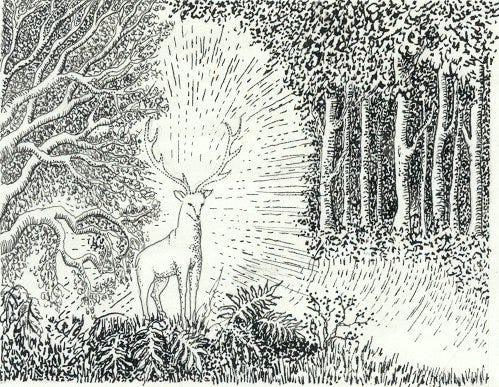
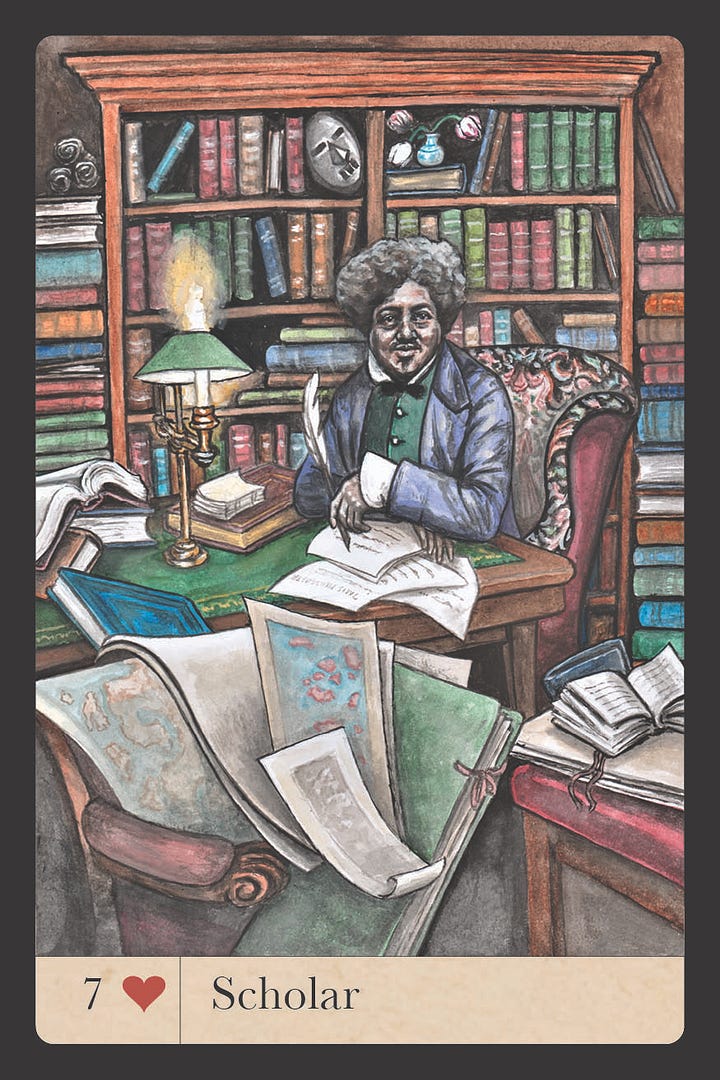
In the time of dragons, we needed to be armoured for the quest to withstand the blandishments and commands of publishing. Dragon-slaying today is now part of a greater quest, for in the face of AI and poor facsimiles of inspirational and informed writing, we are having to be torch bearers for truth and integrity in writing. We ourselves have both been endlessly plagiarised and copied, and now everyone’s writing is face to face with AI or, as I call it, the school of thievery and replication which pilfers from all our work,
More than ever, we need to defend the sources of inspiration that flow from ancient springs and ensure that those waters are pure and fit to drink, uncontaminated by self-replicating inanities which are trying to swim in those waters and pass themselves off as ‘the real thing.’ I bring to mind the dragonfly - an insect that cannot live near polluted water. If a dragonfly comes down to drink from a water-source, then it really is clear water.
Writing is a craft that needs the instincts of the dragonfly, for writing feeds the soul and opens doors into countries of imagination that keep us healthy and connected to all which is good for us. So, while our image of the questing couple is no more except in our imaginations, I leave you with two from our long out of print Storyworld Cards, which show the Faery Charm and the Faery Shield, both by Debra McFarlane, whose images are my favourites from this project - may we quest onwards with brave hearts and joyful imaginations, listening always for the saving stories that keep us bright!
You may enjoy our new course: THE SHRINE IN THE DARKNESS with Cáit Branigan and myself.
In times of deep change, spiritual practices can provide solace, comfort and a powerful foundation to aid us in accessing deep sources of support. Such support provides us with the depth and strength required to stay in loving awareness and to hold to an ethical approach to life and growth. Unfortunately, in a world that focuses on success, such foundational practices are often neglected. This course is for all people of spirit, regardless of whether they belong to a spiritual tradition or not. Based upon the simple practices and wisdom of the Sister Islands of Ireland and Britain, we find the ancestral path that has always been under our feet, so that we and the children who come after us may have good guidance.
FEES: Single: £675 Shared: 600, Non-Res: 480.Please send your non-returnable deposit of £150 payable to Hawkwood College, Painswick Old Rd., Stroud, Glos GL6 7QW (01453 759034) Please send your non-returnable deposit of £150 payable to Hawkwood College, Painswick Old Rd., Stroud, Glos GL6 7QW (01453 759034)





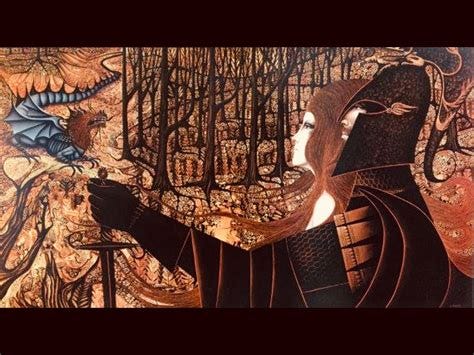
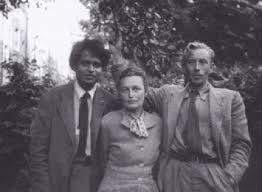


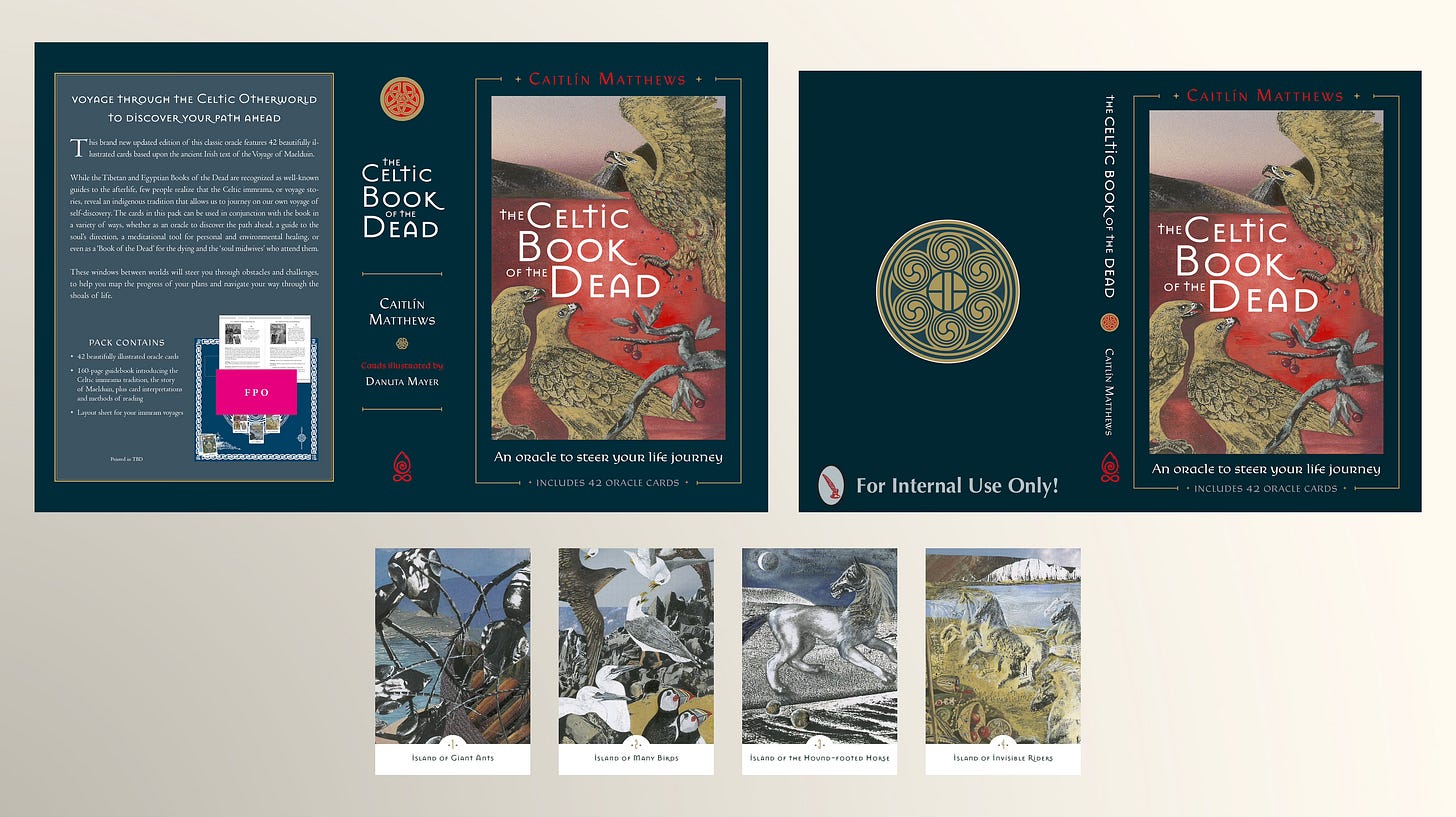




“More than ever, we need to defend the sources of inspiration that flow from ancient springs and ensure that those waters are pure and fit to drink…” that sums it up perfectly. We do. We need to let Awen flow from source and truly honour the Muse. The alternatives don’t bear thinking about…
Wow, what a great journey! And so many dragons slain on the way... I remember being fascinated by the typewriter in my house as a child: trying to write a sentence on it felt like lifting mountains. Tempora mutantur et nos mutamur in illis... but there was something magical in writing by hand that is lost in the webpages of screens. I send you mythic blessings from the sacred spring of Arethusa.